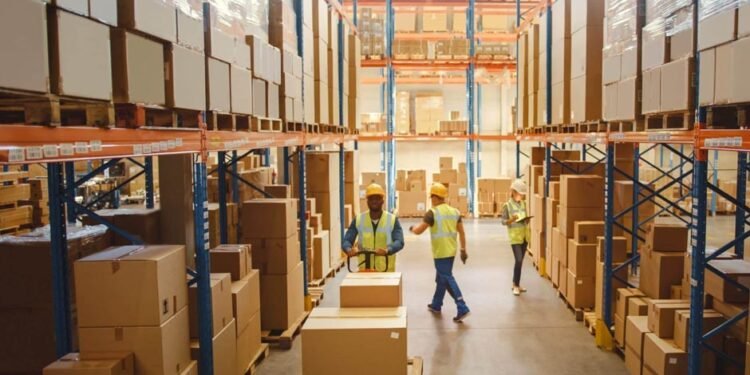The logistics industry has been constantly evolving over the years. From manual processes to automated systems, the industry has come a long way in terms of efficiency. The rise of technology has greatly contributed to this progress, enabling logistics companies to streamline their operations and better meet their customers’ needs.
In this article, we will examine 6 technological innovations that are driving efficiency in the logistics industry.
Autonomous Vehicles
Autonomous vehicles, or self-driving vehicles, are one of the most talked-about technologies in the logistics industry. These vehicles use sensors and advanced algorithms to navigate roads and deliver goods without requiring a human driver. This eliminates human error and allows for faster and more efficient deliveries.
In addition, autonomous vehicles can operate 24/7, reducing the time it takes for goods to reach their destination. This technology is still in its early stages, but many logistics companies are already investing in it to stay ahead of the competition.
Internet of Things (IoT)
The Internet of Things (IoT) is a network of connected devices that can communicate with each other without human intervention. This technology has revolutionized logistics by providing real-time information on shipments, vehicles, and warehouses. IoT sensors placed on containers or trucks can provide data on location, temperature, humidity, and shock detection. This allows for proactive measures to be taken in case of any issues, preventing delays and damages.
IoT also enables predictive maintenance of vehicles, reducing the risk of breakdowns or accidents. This technology has greatly improved supply chain visibility, leading to more efficient operations.
Artificial Intelligence (AI)
Artificial intelligence (AI) is another game-changing technology for the logistics industry. With AI-powered algorithms, companies can analyze vast amounts of data to make better decisions and optimize their supply chain. For instance, AI can help logistics companies plan the most efficient delivery routes, considering factors such as traffic and weather conditions.
AI can also improve forecasting accuracy, reducing inventory costs and preventing stock shortages. This technology also enables real-time tracking of shipments, providing customers with accurate delivery estimates and enhancing their overall experience.
AI has also helped logistics companies streamline their financial processes by automating invoice generation and payment processing tasks. Just like generating a landscaping invoice template, AI can generate accurate and detailed invoices for logistics services, reducing the risk of errors and payment delays.
Blockchain
Blockchain technology has gained considerable attention in recent years, especially in the finance industry. However, it also has significant potential for the logistics sector. Blockchain is essentially a decentralized database that records transactions securely and transparently.
In supply chain management, blockchain can track products from their origin to the final destination, providing an unalterable record of each step. This increases traceability and accountability, reducing the risk of counterfeit goods and promoting ethical sourcing.
Drones
Drones, or unmanned aerial vehicles (UAVs), are increasingly becoming integral to modern logistics operations. Drones offer a flexible and efficient means of delivering goods, particularly in hard-to-reach or remote areas. They can bypass traditional logistical hurdles such as traffic congestion and challenging terrain, ensuring faster delivery times. This is especially valuable for critical deliveries, such as medical supplies, to disaster-stricken areas, where time is of the essence.
Additionally, drones can be utilized for inventory management within large warehouses. Equipped with advanced imaging and scanning technologies, drones can perform inventory checks much faster than manual methods. They can traverse high shelves and reach tight spaces to scan barcodes, track stock levels, and identify misplaced items, enhancing inventory accuracy and reducing the time and labor required for stocktaking.
Warehouse Management Systems (WMS)
Warehouse Management Systems (WMS) are sophisticated software solutions that optimize warehouse operations by providing real-time visibility into inventory levels, order processing, and storage management. By leveraging WMS, businesses can streamline workflows, improve order accuracy, and enhance overall operational efficiency.
The system integrates with existing enterprise resource planning (ERP) platforms, ensuring seamless data exchange and improving decision-making processes. Additionally, WMS supports advanced features like automated picking, packing, and shipping, which minimize manual errors and reduce fulfillment times. As a result, WMS is essential for companies aiming to maintain a competitive edge in today’s fast-paced logistics landscape.
Final Thoughts
These six technological advancements are just a few examples of how technology is transforming the logistics industry. With the constant evolution and adoption of new technologies, we can expect to see even more groundbreaking innovations in the future. As businesses continue to prioritize efficiency, speed, and sustainability, it is clear that technology will play a crucial role in shaping the future of logistics. Embracing these advancements and staying updated with emerging technologies will be essential for companies to stay competitive and meet the ever-changing demands of the modern supply chain.












